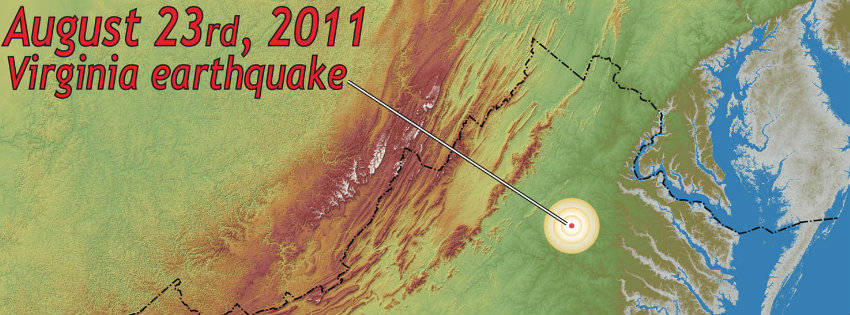Safety Plan: Earthquakes

In 2011, a magnitude 5.8 earthquake originating in Louisa County, Virginia, caused an estimated $200-$300 million in damage, and caused landslides up to 150 miles away.
Visit Drop! Cover! Hold on! to test your earthquake knowledge and skill. Recommended earthquake safety actions [pdf]
Get your home ready for earthquakes
- Secure tall furniture to the wall. Keep large or heavy objects on low shelves.
- Store breakable items in lower cabinets with doors and latches.
- Inspect and repair electrical wiring and gas connections; these can be potential fire hazards during an earthquake.
- Secure your water heater by strapping it to wall studs and bolting it to the floor.
- Check your home or building for structural defects and repair cracks in your ceiling and foundation.
- Keep toxic and flammable items securely stored in cabinets with doors and latches.
- Identify safe places in your home or office where you will ride out an earthquake. The best protection is under heavy furniture where you are protected from falling debris.
- Earthquake Safety Checklist - FEMA.gov.
Know what to do during an earthquake – Most deaths and injuries are due to falling walls, flying glass or debris.
-
During or immediately after an earthquake, the best protection is to get under heavy furniture, such as a desk, table or bench, staying away from glass.
-
The greatest danger is falling debris directly outside buildings, at exits and along exterior walls.
-
If you are already outside, stay clear of buildings, power lines, overpasses and elevated expressways.
-
Expect aftershocks – smaller quakes (and sometimes larger ones) that can often follow hours or days after the initial shake, causing further damage to weakened buildings and structures.
-
Check for gas leaks. If you smell gas or hear a hissing or blowing noise, open a window and leave the building immediately; turn off the gas at the outside main valve, if possible, and call the gas company.
